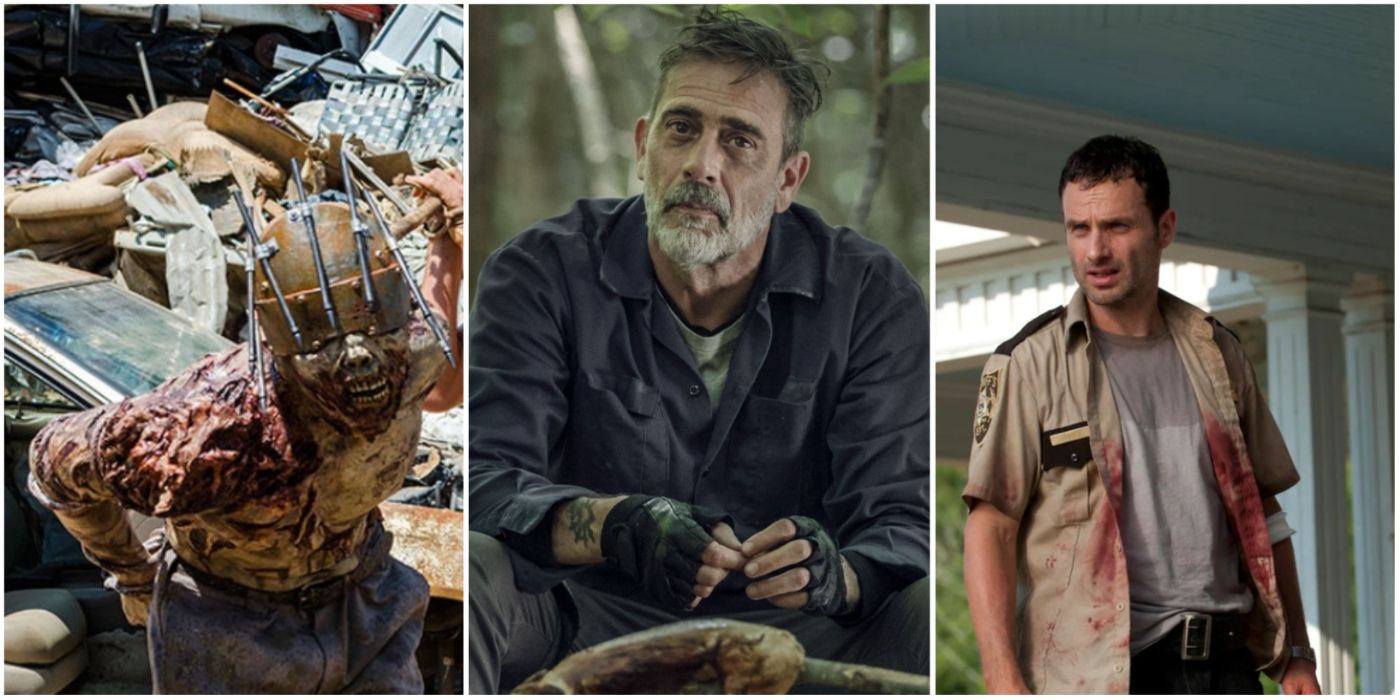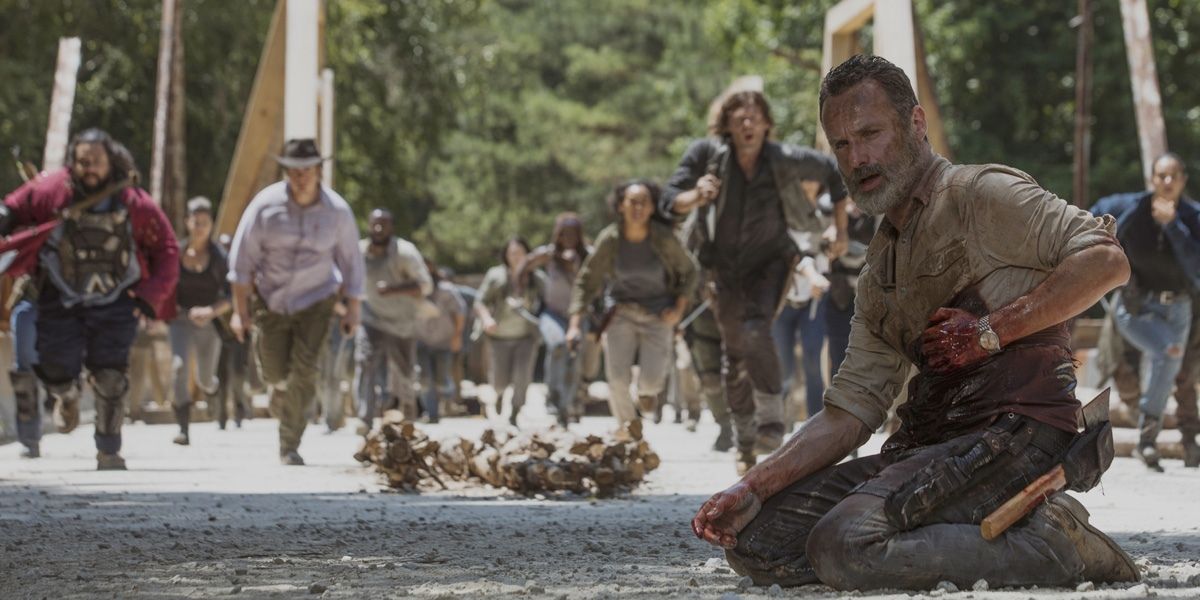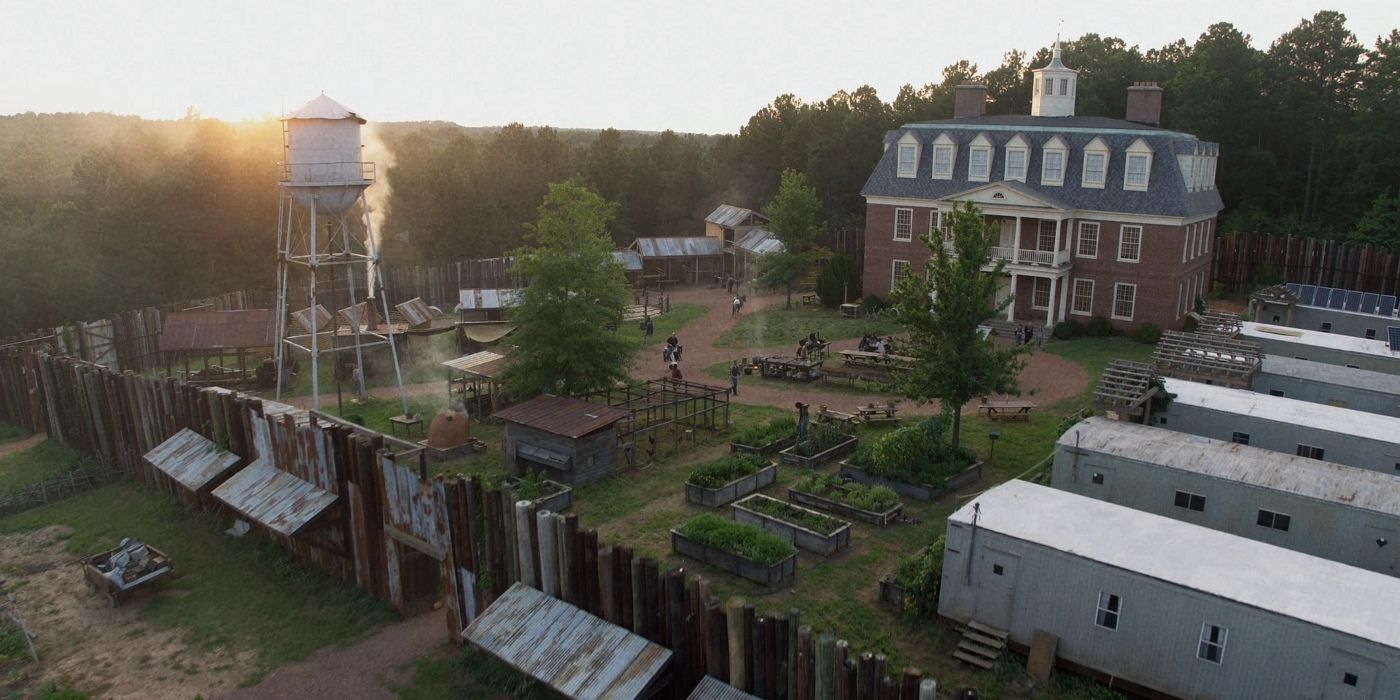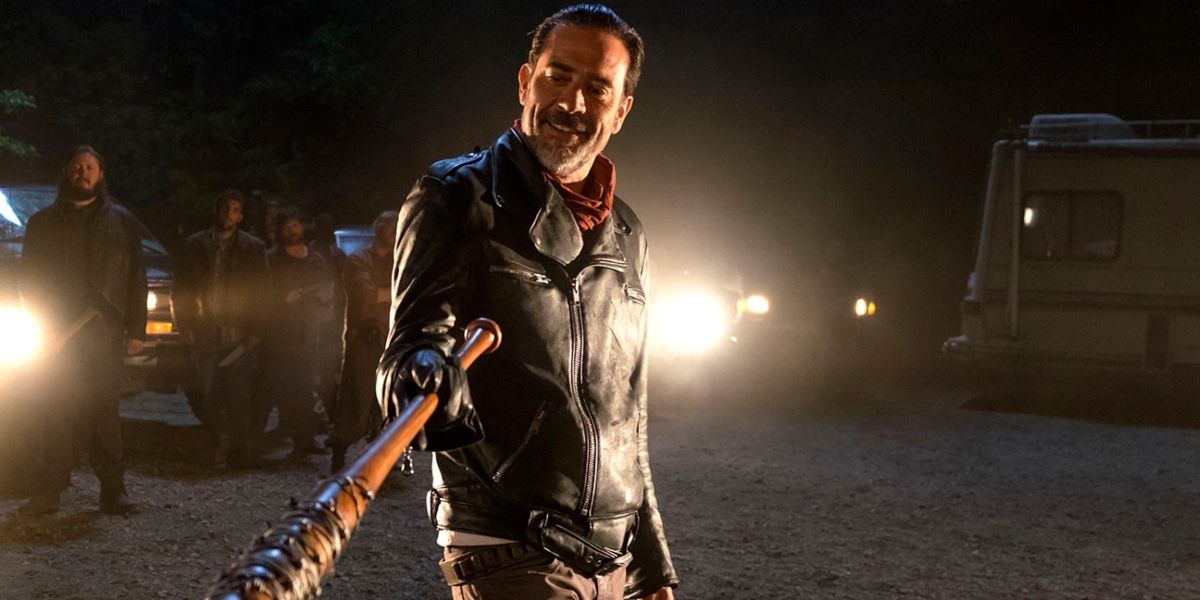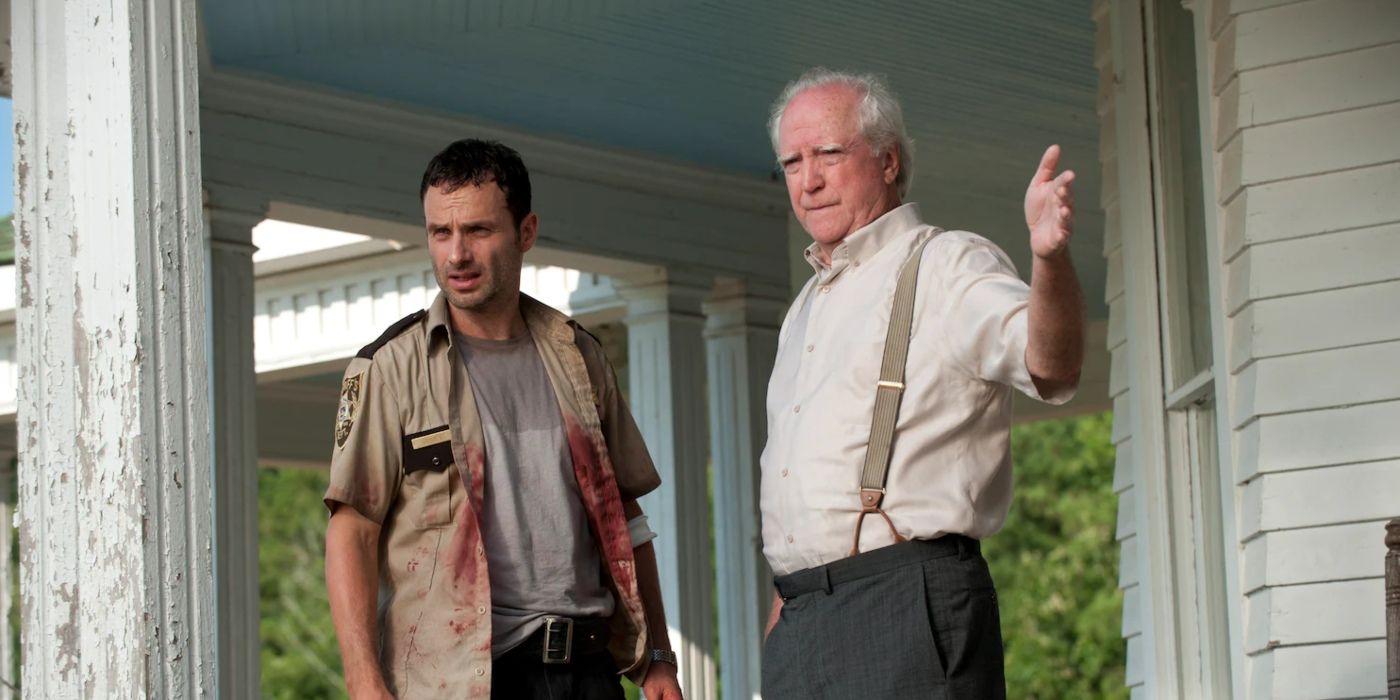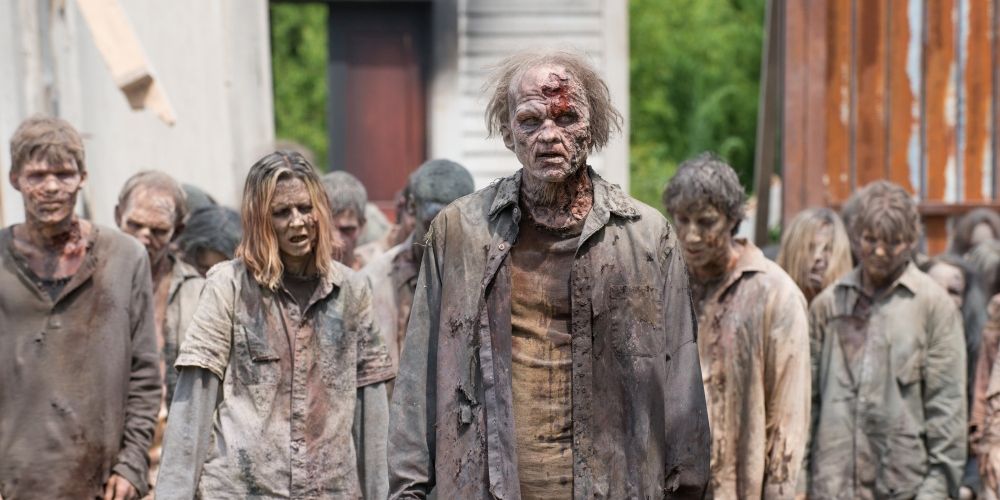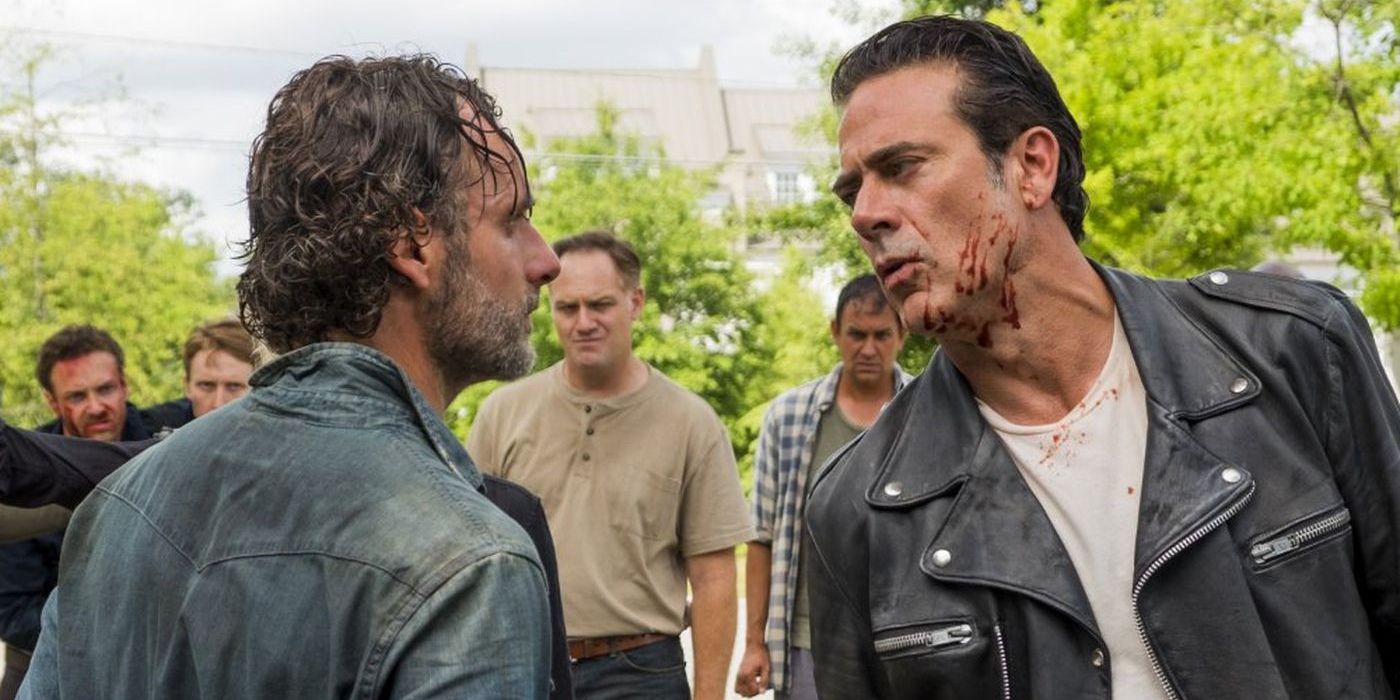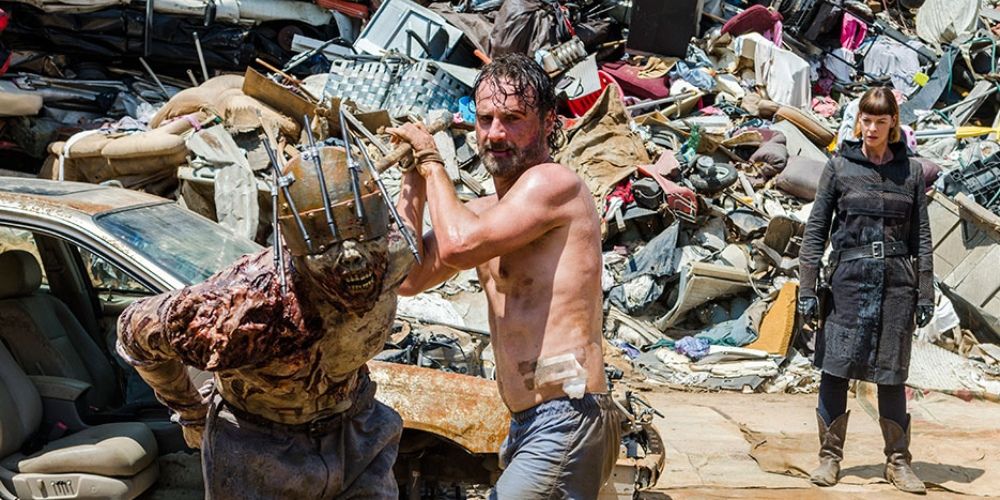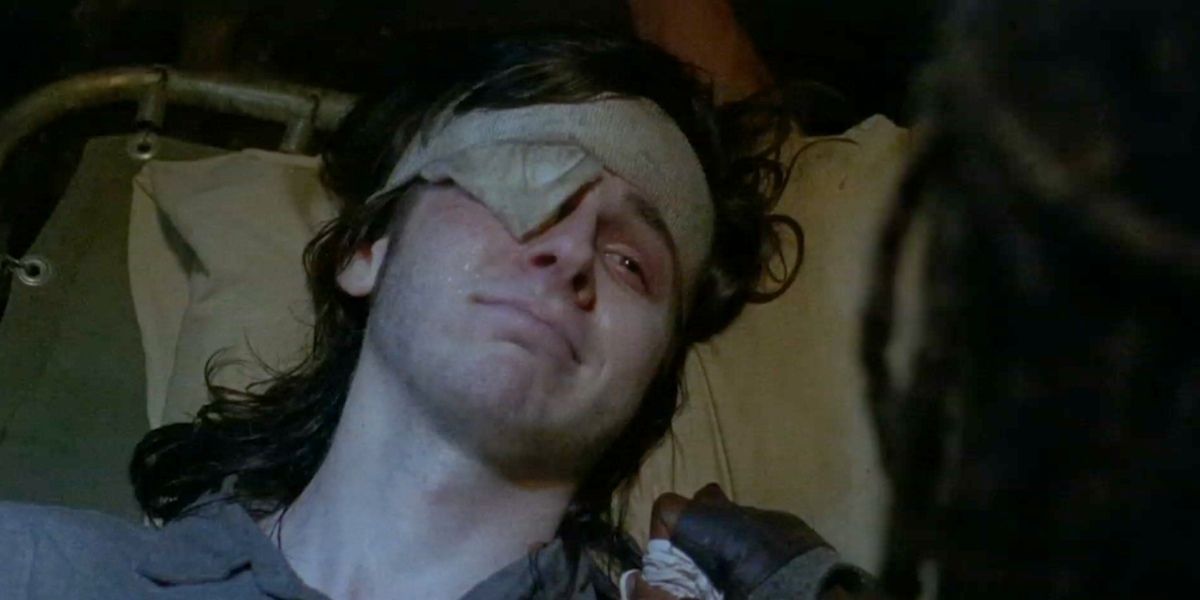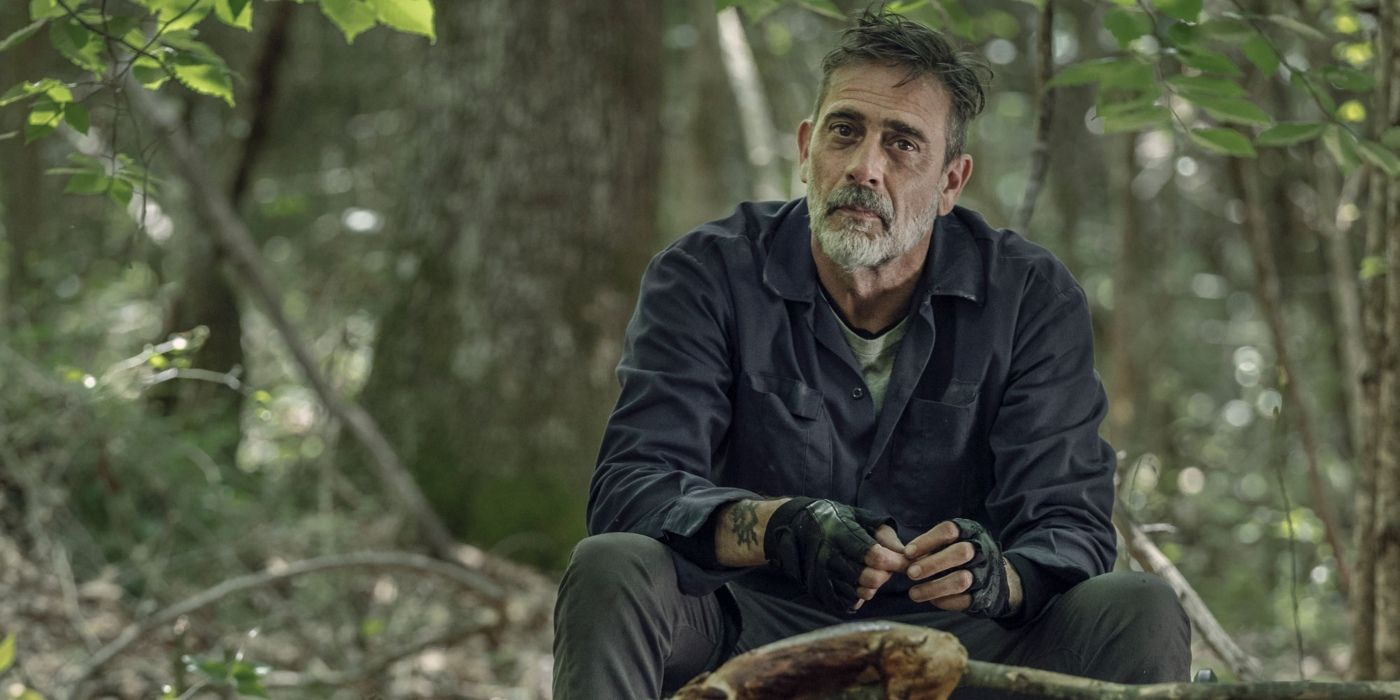The Walking Dead won a lot of fans over its 11-season run. It became one of the premier shows on cable television and a pop culture touchstone. However, it didn't have universal critical acclaim during its time on the airwaves. Nor was it always beloved by its many fans.
Many in The Walking Dead's fanbase were quite cynical regarding the show. Some thought the show had a lot of wasted potential, had made many poor turns, or had outlived its welcome. In particular, the show had some infamous moments with negative long-term impacts. These moments are remembered years later for doing irreparable harm to The Walking Dead.
10 Rick Grimes' Departure Left A Hole
The Walking Dead had a vast, sprawling cast. However, Rick Grimes was at the center throughout the first nine seasons. He was the show's focal character and the group's leader. The audience followed his attempts to build a future for himself and his family; everything returned to Rick.
When he left the show in The Walking Dead's ninth season, it lost something forever. The show attempted to replace him with fan-favorites Daryl, Maggie, and Negan, but all three of them together still didn't manage. It wasn't as compelling or as complete without Rick. Even actor Andrew Lincoln expressed regret at leaving the show when he did.
9 Expanding Too Quickly Diluted The Story
The latter half of The Walking Dead's fifth season marked a major turning point for the show. It ceased to be about a small group trying to survive, wandering from place to place. The group discovered the Alexandria Safe Zone. Alexandria became the focal point for the rest of the show. It didn't stop there, however. Shortly afterward, they discovered Hilltop, the Kingdom, Oceanside, the Saviors, and more.
The show went from a small, contained story to a sprawling one within a season. Dozens of characters joined the cast and the scope expanded well past the point of survival. A shift in the show's story wasn't necessarily a bad thing. However, The Walking Dead expanded too rapidly. The show took on too many characters and didn't have a way to recapture the intimate feeling of earlier seasons.
8 Negan's Infamous Death Cliffhanger Made Fans Lose Faith
In The Walking Dead's entire run, there was no moment more infamous than the ending of the sixth season's finale. Echoing an iconic comic book moment, Negan chose one of the survivors to kill. However, The Walking Dead showed it from the perspective of the victim. It gave no clues about the victim's identity and forced viewers to wait months to learn.
Most considered this a cheap ratings ploy rather than a tense cliffhanger. Fans and critics alike thought it was mean-spirited and disrespectful to the fans. It wasn't made any better with the bait-and-switch of Glenn dying moments after Abraham. It was the moment when many fans lost faith in the show. Its reputation never quite recovered.
7 Increasing The Season Length Caused Storylines To Drag
Nearly every season of The Walking Dead was contentious. Every one of them had fans and detractors, even if some were more widely loved than others. However, season 1 was beloved by almost all. It was considered the perfect blend of zombie survival and interpersonal drama. Its pacing, action, and characterization were all considered excellent.
It was also far shorter than other seasons. Season 1 of The Walking Dead was only six episodes long. Every other season had at least thirteen episodes. While this did lead to more content, not all fans approved. It's only after season 1 that accusations of drawn-out storylines became commonplace. The show was infamous for its slow pace in later seasons. Longer season lengths were one reason why.
6 Undercutting The Walkers Robbed The Show Of Terror
The Walking Dead's walkers were able to bring society to its knees. In the show's earliest seasons, they were a genuine threat. They swarmed en masse, overwhelmed healthy and well-armed survivors, and claimed a high kill count. This dropped off sharply throughout the show. Once human villains took center stage, the walkers became set dressing.
Walkers' lesser prominence came with reduced threat. They became much slower and easier to kill. By later seasons, characters only seemed to die to them when the universe conspired to make it so. Fans came to view the walkers as objects of mockery. This changed the tone from the genuinely-tense survival horror of the early seasons and took away some of the show's core premise.
5 Dragging Out The Savior War Ruined A Beloved Storyline
The Savior War was one of The Walking Dead's most iconic plotlines in comic books and television series. It pitted Rick Grimes and his allies against the iconic Negan and represented a major clash between good and evil. It was, however, a surprisingly short event in the comic books. The television series dragged it out to two and a half seasons.
The Saviors dominated the storyline from the back half of season 6 to the end of season 8. There just wasn't enough material to fill that time. Even with bottle episodes and side excursions, the storyline dragged. The war should have been a turning point for the show. Instead, many consider it to be a genuine low point. Viewing figures never recovered, and many decided the show couldn't do the story justice.
4 The Increasing Weirdness Made It Hard To Take Things Seriously
The Walking Dead's early seasons were noted for their darkness, brutality, and relative realism. The characters felt, acted, and spoke like real people in an impossible situation. The survivors were all relatively relatable. Even protagonist Rick Grimes was just a small-town cop with a strong moral compass.
Later seasons got far stranger. They introduced the Wolves, who carved letters into their foreheads. The audience also met Hilltop, a society where people dressed and spoke like a Shakespeare play, and the leader had a pet tiger. The Scavengers lived in a dump and spoke as oddly as possible. Elements like these worked in the comic books but were harder to take seriously in the jump to television.
3 Killing Off Carl Grimes Robbed The Show Of Its Future
Rick Grimes was The Walking Dead's protagonist, but his son Carl was easily its deuteragonist. The show devoted a considerable amount of time to Carl's development and used him to represent a future for all humanity – until the show's eighth season when Carl was bitten by a walker and died.
It was a major death, and one with some excellent performances. However, it also invalidated a substantial chunk of its earlier storytelling, ended many beloved character dynamics, and robbed the show of Carl's symbolism. It had an immense impact on future storylines, particularly compared to the comic book. Many fans viewed it as a change far for the worse.
2 The Show Splitting Its Cast Starts A Disliked Trend
A significant flaw in The Walking Dead was well-liked the first time it happened. Season 4B split the cast into smaller groups and focused on their individual stories and development. As a result, season 4B was considered part of an excellent era for the show. Many liked its smaller focus, particularly after several fast-paced storylines.
However, the show continued to take this approach after the group reunited. As the cast expanded, more episodes focused on small groups of characters to the exclusion of others. This slowed the pacing, made side storylines hard to follow, and resulted in many pointless episodes.
1 Focusing On Negan As A Protagonist
After Negan's iconic turn as a villain, he became something of an antihero in both The Walking Dead comic book and show. However, the comic book used him far less. He participated in the Whisperer War, and then he left. The TV show forefronted Negan far more, turning him into one of its protagonists.
Despite Negan's popularity, this proved problematic in a few ways. It angered those who thought Negan irredeemable and thought the show was too kind about his crimes. It also pushed aside other popular characters with less screen time. Most significantly, it dragged out the plotline of Maggie's hatred of Negan far longer than most fans could tolerate.

